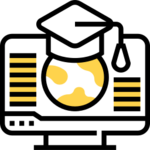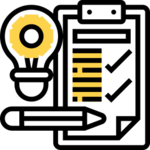
P.E.A.R. Framework: A quality WIL experience
Our cutting-edge P.E.A.R. framework is the foundation for crafting top-tier work-integrated learning (WIL) programming. That includes the University of Waterloo’s trailblazing co-op program. The four pillars of P.E.A.R. that prepare learners to be future-ready are:
- Pedagogy
- Experience
- Assessment
- Reflection
The components
When combined, these four components ensure our WIL programs are transformative. Apply these before, during and after each action for a quality WIL experience.
Pedagogy: Fusing learning with real-world application
- Blend academic and workplace learning seamlessly.
- Define, measure and articulate clear learning outcomes.
- Bridge the gap between theoretical and practical knowledge.
Experience: Going beyond the classroom
- Offer substantial, meaningful experiences in real-world settings.
- Engage students directly instead of being passive observers.
- Encourage exploration and challenge students' beliefs and values.
Assessment: Measuring what matters
- Focus on developing skills, knowledge and lifelong learning habits.
- Push students to question their values and integrate new learning.
- Go beyond learning; students shape the learning environment.
Reflection: Looking back to move forward
- Move beyond mere description to deep, critical analysis.
- Help students project their learning into future practices.
- Support and assess reflection in a socially engaging way.

P.E.A.R. in practice
All our programs put the P.E.A.R. framework in action. We see the success time and again. Our award-winning WE Accelerate program is a real-world example of the P.E.A.R. framework:

Pedagogy
Skills development: Cutting-edge curriculum designed for the future of work .

Experience
Project experience: Hands-on projects with real employers.

Assessment
Project evaluation: Constructive feedback from project employers.

Reflection
Career bookend: Students reflect on their experiences and career aspirations.
